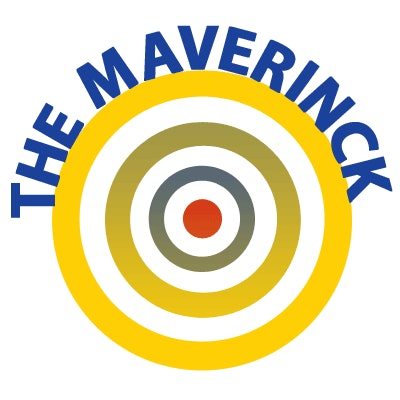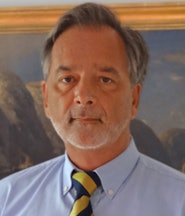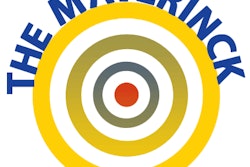
For many people, perhaps for most who read this column, English is not their mother tongue, in other words, their first language. English is not my first language -- nor my second, which was Latin; English is my third language. Since I spent many years in different countries, English took over. I wrote scientific articles and books mostly in English, very few are in German or other languages.
The option of a scientific community in favor of one or the other language is only seemingly free. Some years ago I mentioned in a column:
The late president of France, Georges Pompidou once stated: "We must not let the idea take hold that English is the only possible instrument for industrial, economic, and scientific communication."1
He was right; in Europe, it could be Russian or German, but he, of course, thought of French. He also highlighted the main feature of international English: its "global" range. He distinguished between the use of a language as a communicative instrument for securing competitive advantages -- economic reasons -- and the use of a language as a medium for the maintenance of identity, culture, and a distinct civilization.
 Dr. Peter Rinck, PhD, is a professor of diagnostic imaging and the president of the Council of the Round Table Foundation (TRTF) and European Magnetic Resonance Forum (EMRF).
Dr. Peter Rinck, PhD, is a professor of diagnostic imaging and the president of the Council of the Round Table Foundation (TRTF) and European Magnetic Resonance Forum (EMRF).Nearly one-fifth of the population of the European Union (EU) speaks German as their first language. English, French, and Italian as first languages are only spoken by some 16% each. However, 47% of EU citizens claim that they speak or can speak English, 31% of them as a foreign language. Very few are able to chat away in French, Italian, German, or Russian as their third or fourth language.
Yet, there is a kind of grass-roots movement critically reflecting the use of English as a language of science -- but not of business.
Some of the foes of English as the universal language stress that the ubiquity of English ensures Anglo-American superiority around the world, and it is difficult to refute this argument. Although the effect of the U.K. is limited these days, U.S.-American economic and political influence is strong.
However, the "international" or "global" English spoken abroad has lost a clear cultural identity; it has established itself as a globalized language without a distinct cultural background. Thus, the current discussion about linguistic diversity is also a sign of the globalization debate.
The radiological world
But is the everyday radiological world a global village? Or does the dictate to have to use English lead to cognitive impoverishment and a loss of medical identity and independence?
If you want to dance on an international stage -- give talks, publish papers, apply for grants -- there is no getting around English. However, teaching is done more successfully in the national languages because it allows a better understanding of contents and distinction of subtleties of a topic.
The same question holds for scientific publications. The expression of nuances is far easier in one's own language, and the "radiological" or "medical" English turns into a code of limited vocabulary and stilted and artificial phrases, not only in writing, but also as spoken English. This kind of English is a relative of British, North American, South African, and Indian English, but to many "native" English speakers, scientific English is a foreign language they don't understand.
On the other hand, we used to invite "native speakers" to lecture at conferences only when they spoke clear English; an English tainted by dialects from, e.g., Yorkshire, Arkansas, or India was counterproductive for conference participants with English as a second language. The best teachers were those who spoke English as a second language well and taught with a pedagogical drive. They were understood by most participants who had English as a second language, and there were less verbal misunderstandings. On the other hand, native speakers had comprehension problems.
Scientific or global English is distinct from such a personal, individual language: it is the global tool for business, international healthcare, and sales -- and the natural sciences. What is essential for the natural sciences and medicine is not necessarily applicable for the humanities that live and blossom beautifully in other languages than English. For the time being, international English will remain the global business and science language. It is a simple language that can easily be used to communicate with one another and for which there is no imminent replacement.
I have experienced radiologists from the French-speaking part of Belgium talk to their colleagues from the Flemish-speaking part in English. The same holds for Switzerland. German speakers talk in English to their counterparts from Geneva or Lausanne.
However, English will stay or become a second- or third-tier scientific or medical language in regions of the world where huge populations speak a single language of their own, e.g., in Latin America or China. Those who want to sell or teach here need to speak the local language.
Dr. Peter Rinck, PhD, is a professor of diagnostic imaging and the president of the Council of the Round Table Foundation (TRTF) and European Magnetic Resonance Forum (EMRF).
Reference
- Rinck PA. Europe gets entangled in complex language web. Rinckside. 2001;12(4):15-17.
The comments and observations expressed herein do not necessarily reflect the opinions of AuntMinnieEurope.com, nor should they be construed as an endorsement or admonishment of any particular vendor, analyst, industry consultant, or consulting group.



















